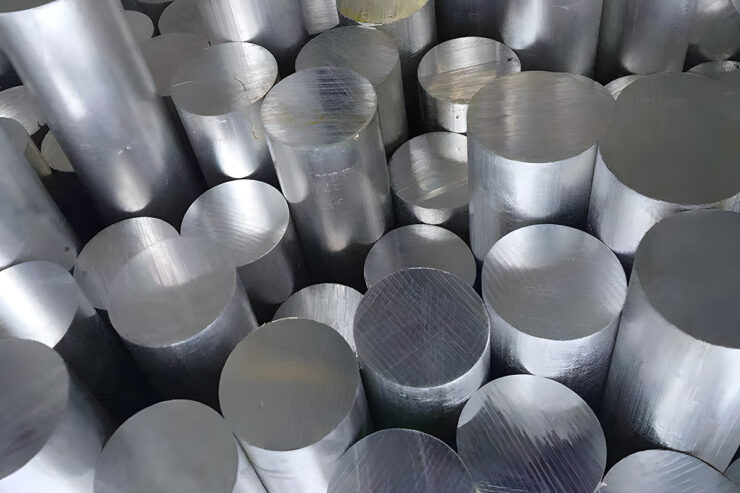7075 T6 aluminum is an incredibly strong and versatile alloy, offering remarkable performance in a variety of applications. It has been around for decades, but its use has grown significantly over the last few years due to its superior strength and lightweight design.
This high-performance alloy consists of zinc and magnesium as the main elements, making it ideal for aircraft parts, automotive components, defense equipment, and more. Its properties are not only limited to being light yet durable – 7075 T6 aluminum also boasts impressive corrosion resistance as well as excellent machinability.
With this powerful combination of attributes, manufacturers can easily adapt the material into any desired shape or size without compromising on strength or quality. As such, 7075 T6 aluminum is quickly becoming one of the most sought-after materials in modern engineering – revealing why it’s become so popular amongst engineers who demand nothing less than excellence from their projects.
Properties of 7075 T6 Aluminum
7075 T6 Aluminum is one of the most sought-after alloys for high-performance applications. It has a wide range of properties that make it an ideal choice for many industries and applications, ranging from automotive to aerospace.
Its strength, corrosion resistance, fatigue tolerance, and machinability are just some of its beneficial characteristics. When it comes to strength and durability, 7075 T6 aluminum stands out above the rest.
This alloy is known for its superior tensile yield strength when compared with other alloys in its family such as 6061 or 2024 aluminum. Additionally, 7075 T6 aluminum can withstand extreme temperatures without losing any structural integrity due to its excellent heat treatability capabilities.
Its ability to resist corrosion sets it apart from other alloys in markets today because of how well it holds up against outdoor elements like rain and snowfall as well as saltwater environments where corrosive materials can quickly wear away material surfaces over time. Furthermore, this alloy’s fatigue tolerance allows it to be used in aircraft engines where components need to stay strong over long periods while enduring multiple cycles of strain loading during operation.
The machinability rating for 7075 T6 aluminum is also admirable given its hardening characteristics which can sometimes make cutting operations more challenging than usual; however, with proper tools and techniques along with the right lubricants this alloy delivers great results at fast speeds without sacrificing surface finish or dimensional accuracy during production runs – making it a highly versatile metal suited for various industry uses on top of being incredibly strong & durable!
Benefits of Using 7075 T6 Aluminum

7075 T6 aluminum is known for its strength and versatility, making it an ideal choice for a variety of applications. Here we will discuss the benefits that come from using 7075 T6 aluminum in projects requiring high-performance alloy.
One key benefit of 7075 T6 aluminum is its durability and longevity when exposed to harsh environments or conditions. Its superior corrosion resistance makes it great for outdoor use and helps ensure that your projects last longer than if you had chosen another alloy.
Additionally, this material has excellent fatigue resistance, meaning it can handle repetitive stress without becoming weak or brittle over time. Another major advantage of using 7075 T6 aluminum is its lightweight yet impressive strength.
This combination makes it perfect for projects where weight needs to be kept low but performance must remain high – such as aerospace components or automotive parts which need to support heavy loads while still being able to move quickly and efficiently through the air or on land respectively. Finally, this versatile alloy also offers excellent machinability compared with other metals like steel or titanium – allowing you to create complex shapes and structures with ease while minimizing waste materials during fabrication processes.
Its malleability ensures that even intricate designs can be easily achieved with minimum distortion after welding or assembly procedures have been completed. All in all, these features make 7075 T6 aluminum an ideal choice when looking for a strong yet lightweight metal solution that provides superior performance in any application!
Applications of 7075 T6 Aluminum
From its superior strength to its corrosion resistance, 7075 T6 aluminum is a versatile alloy used in many applications. This high-performance material can be found in the aerospace industry, where it is valued for its lightweight properties and durability.
Its great tensile strength makes it an ideal choice for aircraft frames and fuselages while its excellent fatigue resistance makes it a top choice for components that must withstand frequent stress cycles. 7075 T6 aluminum can also be found in industrial structures such as bridges and towers, due to its ability to retain shape even after heavy loads are applied.
The automotive industry relies heavily on this alloy for engine blocks, suspension parts, wheels, and other components because of the combination of lightweight with maximum strength. Even hobbyists use 7075 T6 aluminum when working on projects such as radio control cars or model airplanes due to its unique characteristics and affordability compared to other alloys.
With so many uses across multiple industries, there’s no question why 7075 T6 aluminum continues to be one of the most sought-after metals today!
Challenges and Considerations for Working with 7075 T6 Aluminum

Working with 7075 T6 aluminum can be both rewarding and challenging. It has many advantages over other types of metals, but it also has some specific considerations that should be taken into account when deciding to use this alloy.
One of the main challenges is the cost, as 7075 T6 aluminum is often more expensive than other options on the market. Another challenge is its workability—it can often require specialized tools and techniques for optimal results.
Furthermore, due to its high strength-to-weight ratio, certain forms may not be suitable for certain projects or applications without additional reinforcement or support structures. The versatility of this alloy makes it ideal for a wide range of uses across multiple industries; however, there are still important factors to consider such as heat treatment requirements and corrosion resistance capabilities which depend heavily on the environmental conditions in which they will be used.
Additionally, if machining parts out of 7075 T6 aluminum care must be taken due to its tendency towards tool wear in certain situations and an awareness of any potential burr formation during cutting operations should also form part of your production plan. Overall, working with 7075 T6 aluminum can offer great rewards if done correctly with a clear understanding of all challenges and considerations surrounding this metal alloy’s use cases.
With careful planning and implementation, you can gain access to many benefits including increased strength while maintaining lightweight properties – making it an increasingly popular choice among engineers today!
Conclusion
7075 T6 aluminum is an incredibly strong and versatile alloy that has numerous applications in various industries. It offers superior strength-to-weight ratio, excellent corrosion resistance, and good machinability which makes it ideal for aircraft parts, automotive components, sporting goods equipment, and architectural extrusions.
7075 aluminum extrusion can be used to produce a variety of shapes such as tubes and rods with complex geometries for specialized uses. This high-performance alloy is the preferred choice among manufacturers due to its superior properties and affordability compared to other materials.
Its versatility makes it suitable for many different types of projects requiring a lightweight yet durable material that will last long without any degradation over time.

